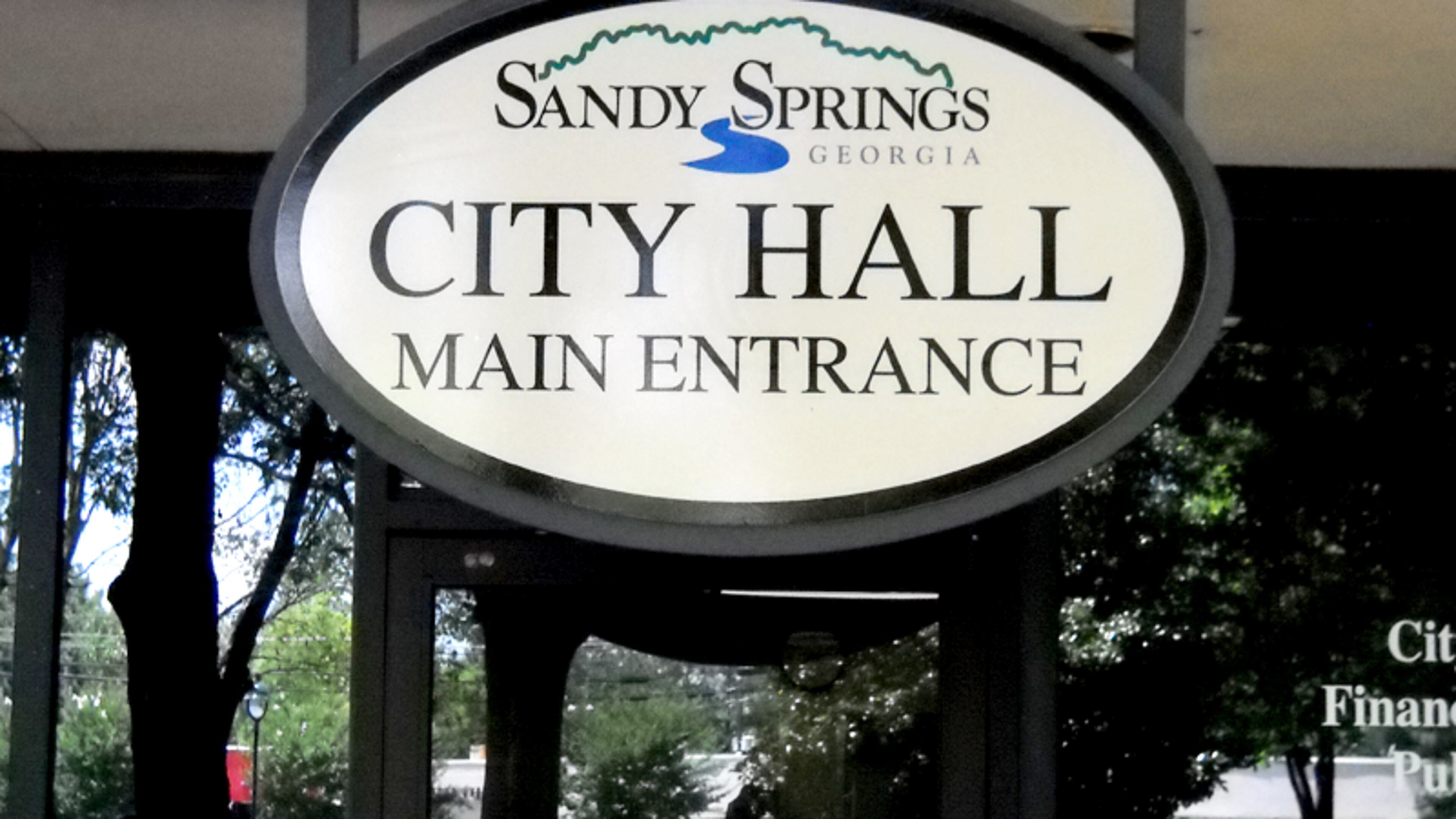OPINION: The 2021 mayor’s race that could hold 2022 clues

Election Day is just six weeks away for mayoral races from Atlanta to Augusta to Brunswick, and more than 100 cities and towns in between.
By state law, contests for mayor and city councils are non-partisan. And unlike congressional districts, the General Assembly can’t redistrict a mayor out of his or her seat. But the results for the upcoming 2021 races can still hold clues about trends in Georgia politics. And they can shed light on the issues important to voters heading into the statewide elections in 2022.
One of the most intriguing mayor’s races is happening across the Atlanta city limit line in Sandy Springs.
While Atlantans fight over Buckhead secession and whom to blame for the latest rise in violent crime, Sandy Springs’ leafy back roads and shiny glass buildings make the 16-year-old city seem a world away.
But that 16-year-old is maturing just like people do. Affordable housing and lots of land for development in the 2000′s seeded the booming growth the city has seen over the last decade.
Along with growing by 17% between 2010 and 2019, the population in Sandy Springs has also become more diverse, more affluent, and as of 2020, much more Democratic.
In 2020, Joe Biden won the once-conservative stronghold 61% to Donald Trump’s 37.5%. Was 2020 an anti-Trump allergic reaction or evidence of a durable shift to a more progressive electorate?
The contest between Mayor Rusty Paul and political newcomer Dontaye Carter could give a clue.
Paul has been in Sandy Springs government for nearly all of Sandy Springs’s life as an independent city, including the last eight years as mayor. A former state senator and chair of the state Republican Party, he is running for his third four-year term in 2021.
Paul points to crime and transportation as the top issues he’s hearing about from voters. But Carter, a former television reporter who now runs his own public relations operation, is focusing on much more progressive issues, like housing affordability, diversity and inclusion.
It’s a choice of bold contrasts for voters in the fast-changing city.
“Crime is clearly number one on everybody’s mind,” Mayor Paul told me in an interview. “People see and hear what’s going on on their doorstep, they talk to their neighbors across the city limit line, and there is real, palpable fear.”
The mayor said that Sandy Springs’ crime statistics had actually been dropping until 2020, when crime rates plateaued. The lack of a crime spike tells him he’s on the right path with a focus on public safety, not the wrong one.
The city is in the process of building a $43 million training and headquarters building for police and has budgeted more for signing bonuses and housing allowances to continue to attract officers.
Along with policing, Paul pointed to transportation and traffic congestion as his second focus in the campaign. “We’re doing what we can with constrained space and accelerating costs,” he said.
The Sandy Springs that Paul helped to start in 2005 is not the same city that will vote in November. The growth he’s overseen has brought in new prosperity and new faces. Minority residents now make up nearly 47% of the Sandy Springs population.
And while incomes rose 11% from 2011 to 2018, a city report on housing affordability showed rents jumped by an astounding 39% in the same time frame, with lower-income residents like teachers and firefighters getting squeezed in the process.
In August the city announced that property tax rates will increase by 4%, based solely on the rise in property values, not on tax rates.
Dontaye Carter has put that housing squeeze, along with the idea of leading a more diverse city at the front of his campaign.
“Despite the fact that crime is low. We’re talking about crime, right? And there’s this fanning the flames of fear,” Carter said of Paul’s focus on crime. “And the reality is we don’t need you fanning the flames of fear. We need you actually doing what we put you in office to do.”
Carter wants to see the neighborhoods impacted by a lack of affordability and housing displacement at the table for conversations about zoning. He also said the goal of affordability should be as important in city planning as developers’ needs.
And he wants equity to play a leading role in a future Sandy Springs. Although Paul created a city task force to examine the issue, Carter said a committee is not enough.
“The city is extremely diverse and so I think it’s time to really start having a conversation about what culture for this city looks like, ensuring that people feel seen and they feel heard.”
Can the former GOP chair continue to lead a city that barely gave Donald Trump a third of its votes?
Carter said Sandy Springs voters should see the same problem with Mayor Paul that they did with Trump. “If you can see the issue (with Trump), I hope you can see it also within our city and recognize that there needs to be a drastic change in our city.”
But Paul said he can keep winning and leading Sandy Springs in the future the same way he has led its rise in the past.
“Most people are really sick of the political infighting,” he said. “They just want somebody who’s focused on solving the problems. And that’s what I’ve tried to do.”
Paul and Carter will meet at a candidate forum next Monday, which the AJC’s Adrianne Murchison will cover.
And they and hundreds of other candidates across the state will run for city halls across Georgia on Nov. 2. The people who win, and the issues they win on, will tell us a great deal about what to expect in Georgia in 2022.



